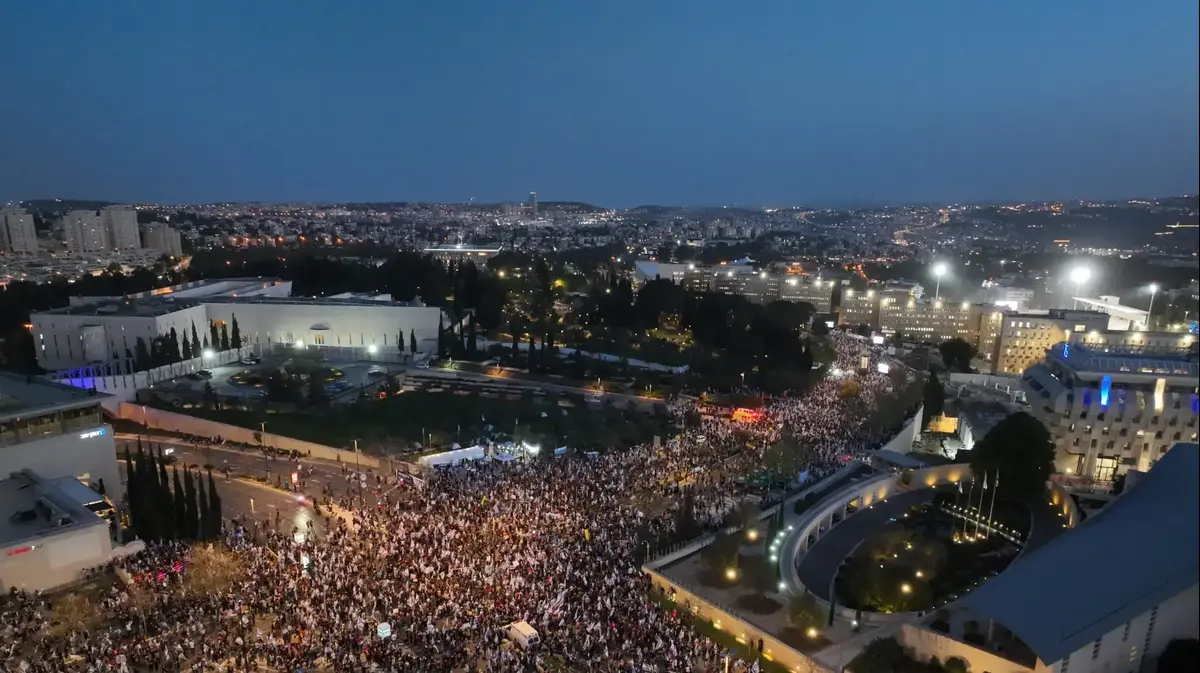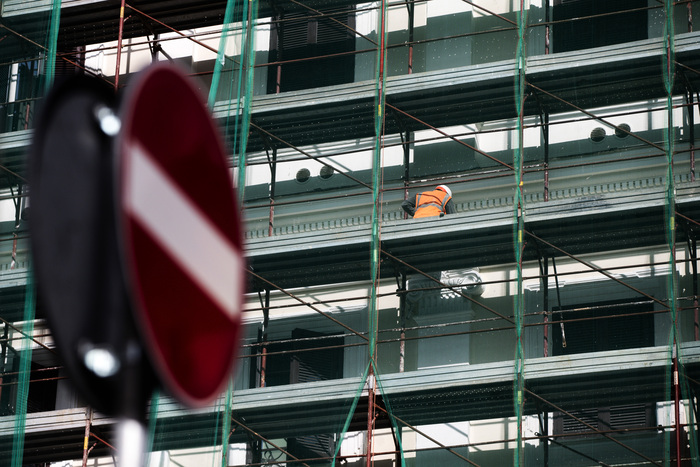Participation in the elections to the Catalan Parliament is falling 11.9 points in relation to the regional elections of 2017, according to the data provided by the Generalitat until 1:00 p.m.
Abstention is one of the ghosts that haunts the 14-F call.
Those fears are being confirmed.
Until that time, only 22.7% of Catalans had exercised their right to vote at the ballot box (compared to 34.6% four years ago).
It is the lowest participation in the entire historical series since 1992, according to data from the Generalitat, although the special circumstances of this day (increase in vote by mail and distribution of voters by time slots) mean that the comparisons are not entirely accurate.
The drop in turnout can be explained, in part, by the vertiginous growth of the vote by mail (350% more this year, an absolute record for all elections).
The census - the number of citizens with the right to vote in these elections - is made up of 5.3 million people, 1.2 million of whom have voted at the ballot box until noon.
This year, 265,647 people have voted by mail, which is 4.94% of the census.
In the last elections, those of December 2017 -after the referendum of October 1-, 78,872 people did so, only 1.48% of the census.
In addition, the Government's recommendation to reserve the first slot in the morning for the elderly and vulnerable may have influenced the participation rate.
"The vulnerable band has a lower voting density, and that also has an impact", has detailed the Minister of Foreign Action, Institutional Relations and Transparency of the Generalitat, Bernat Solé.
Photogallery: The electoral day of the Catalan elections 2021
To these two factors must be added a third, according to Solé's assessment at a press conference, and that has to do with "holding elections in the midst of a pandemic."
The Catalan Government, in fact, initially postponed the elections due to the health crisis derived from the coronavirus to May 30.
But a few days later, the Superior Court of Justice of Catalonia (TSJC) overturned the decree and confirmed that there was no sufficient reason not to hold elections on 14-F with guarantees.
The rain that affected Barcelona and its metropolitan area in the first hours (and then dissipated) may also have contributed to the poor participation results at 1pm.
Fall in Barcelona and its area
The drop in participation, despite everything, is a clear trend in Catalonia as a whole.
Some of the regions where it falls the most are the most populated, which tend to have higher rates of constitutional vote.
The Barcelonès region, which includes Barcelona, Badalona and L'Hospitalet de Llobregat, registered a drop of 12.3 points.
In Baix Llobregat the fall is 12.5 and in Vallès Occidental (Sabadell and Terrassa) it is 12.5 points.
In less urban areas, traditionally more prone to pro-independence parties, the decline is less.
In Berguedà (Barcelona) it has dropped 11 points, in Baix Empordà it has fallen 10.5 points and in Osona it is reduced only 6.5 points.
100% of the tables constituted
Whatever the participation in the electoral day, the 14-F in Catalonia is being celebrated with "full normality", according to the Government.
One of the main fears of the day was that a notable percentage of polling stations would not be constituted on time due to the absence of their members.
And that the vote, as a whole, was touched.
But it has not happened.
There have been difficulties and haste - especially in the province of Barcelona - but at 10.00, 97.4% of the tables had already been formed, Solé reported in a first appearance.
An hour and a half later, according to official data from the Generalitat, 100% of the tables were already set up.
Guide to voting safely in the Catalan elections marked by the coronavirus
Catalonia is played at the polls to overcome a decade of fracture
The counselor explained that at 10:00 a.m. 8,895 of the 9,139 polling stations in Catalonia had been set up.
Solé has highlighted that the data for 14-F were "identical" to those of the last regional elections of 2017 at that same time.
"The assessment is very positive, despite the difficulty of elections in the midst of a pandemic," said Solé, who thanked the public for their "public service and civic spirit."
The electoral law provides that citizens assigned to tables that have not been able to constitute themselves can vote within the following 48 hours.
That scenario, finally, has not occurred either.
It is true that there have been incidents at some tables and that in some cases it has been feared that they might not finally be constituted.
But the problems have been solved to cover 100% of the tables, which dispels any doubts about the dissemination of the results of the vote tonight.
The barrage of excuses presented by the citizens chosen as presidents or members of the polling stations - finally there were more than 34,000 allegations between incumbents and substitutes, according to Solé - set off the alarms in recent weeks.
It was never necessary to resort to the provision of the electoral law to recruit citizens who appear first thing in the schools;
In the end, the use of substitutes has been a key element for the correct development of the process.
Some of the substitutes have had to be employed at different tables to which they were assigned.
The Central Electoral Board (JEC) validated for all of Catalonia an instruction from the Barcelona board that has allowed substitutes to occupy vacant presidents and vocal positions at other tables.
MORE INFORMATION
Who will become president?
Do your calculations and check all the possibilities
Guide to voting safely in the Catalan elections marked by the coronavirus
The director has admitted "incidents", but they are "concrete and resolvable".
He was referring, for example, to a lack of equipment or technical problems.
In some polling stations, as EL PAÍS has been able to verify, those in charge of the polling stations have lamented the difficulty of receiving telephone attention from the electoral board to resolve problems.
For example, the allegations presented by citizens who have not been able to be addressed in time by the electoral boards.
Many substitutes have had to wait in the schools to find out if they were referred to other tables.
The general director of Electoral Processes of the Generalitat, Ismael Peña-López, explained that the results of the elections will be known "for sure" tonight and found that the incidents were minimal.
Peña-López was confident (as he has been) in setting up all of the tables.
The main problems occur in the cities of Barcelona and L'Hospitalet, the two most populated in Catalonia.
The schools that have opened late will also close a little later, he announced in statements to Catalunya Ràdio.



/cloudfront-eu-central-1.images.arcpublishing.com/prisa/ZBXRIG3Q45FTPAS6XESRYPVJXI.jpg)





